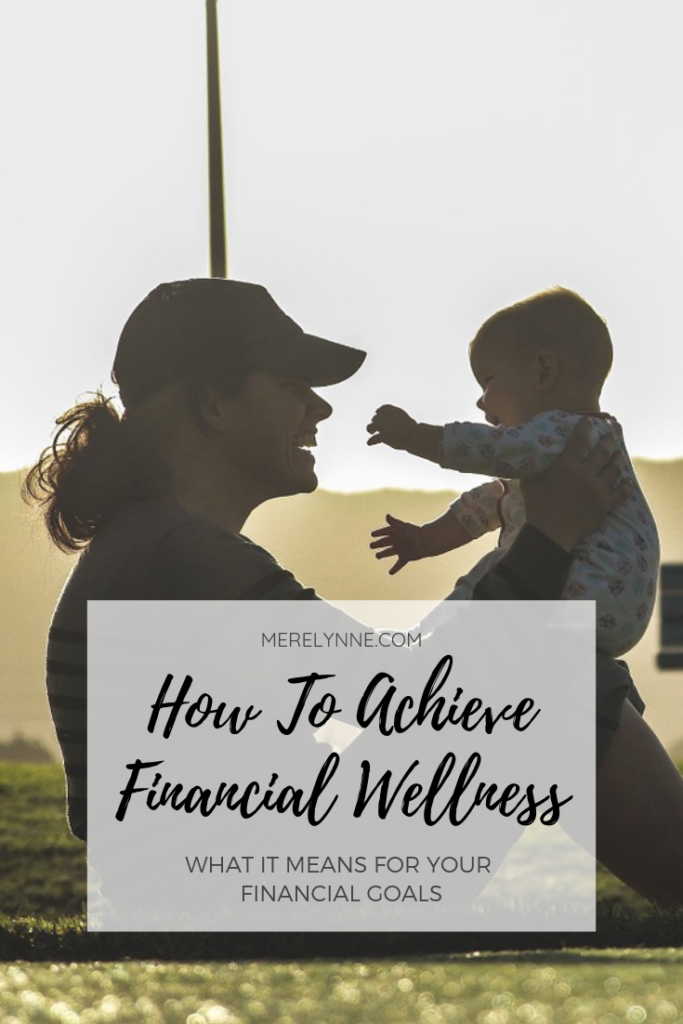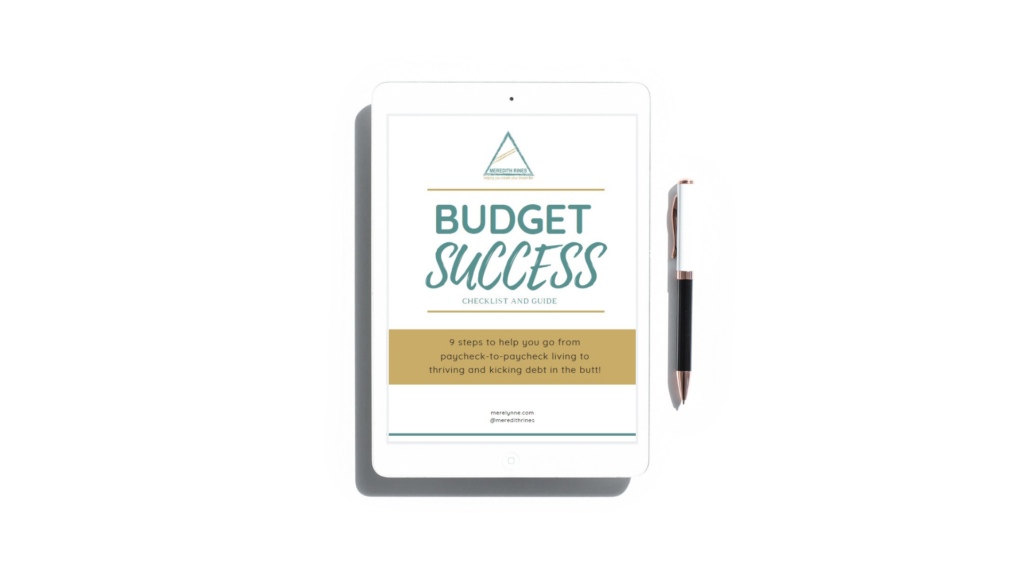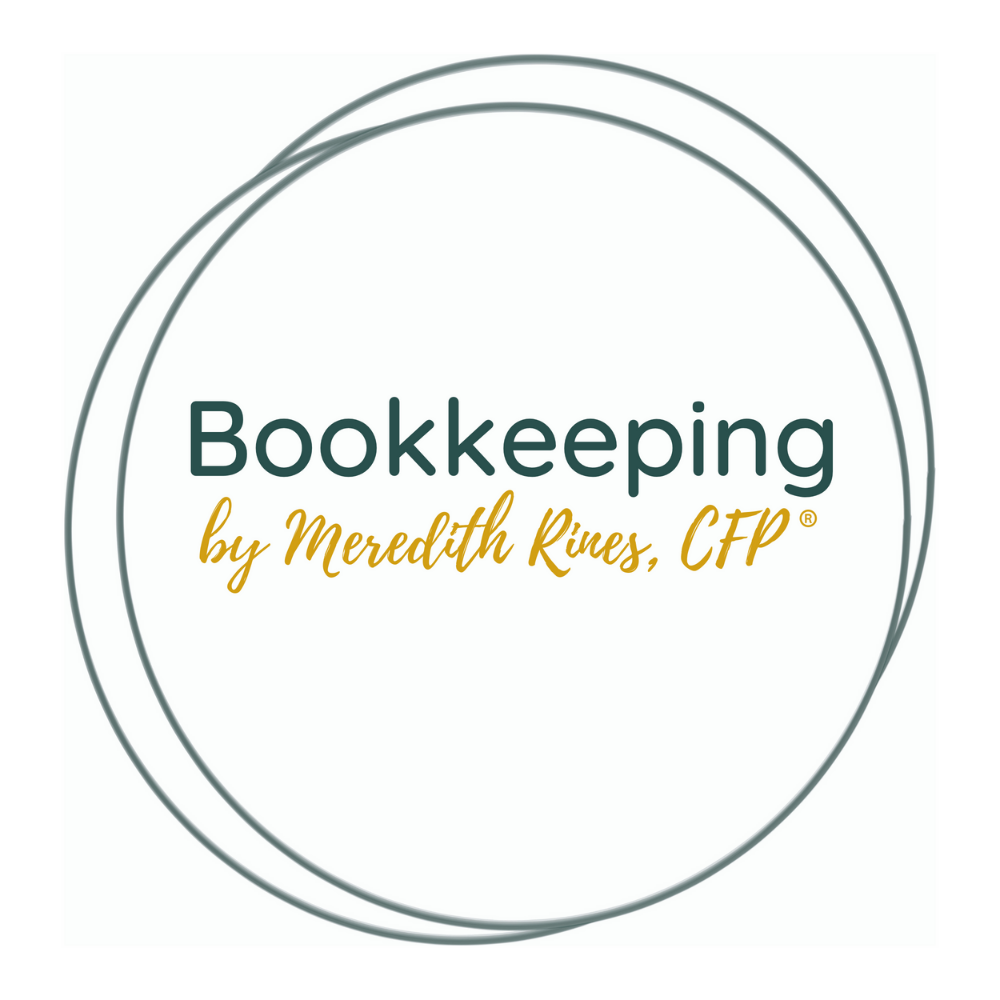
What exactly does financial wellness mean to you?
It can vary from person to person, family to family. your version of financial wellness could be a complete 180 from your best friend, your neighbor and even your sibling.
The idea of being financial well simply means have less stress when it comes to finances. Having more confident in your spending and savings. Being self-sufficient to pay your expenses, meet your goals and so on.
How can you gauge your financial wellness?
Determine your debt-to-income ratio.
This ratio tells you how you’re doing overall with the amount of debt you have. Your debt number is the total amount of debt you have – mortgage, credit cards, car loans, store cards, personal loans, student loans, medical bills, etc. Divide your total amount of debt by your total amount of income. What’s your number?
Is it high? Is it pretty low?
The lower your ratio, the more income you have in comparison to your total amount of debt. You should be striving to lower your debt-to-income ratio number. You can accomplish this in two ways: lower your total amount of debt or increase your income. It’s safe to say the easiest and quickest way to consistently lower this ratio is by continuing to pay down your debt.
Put numbers to your goals.
Do you have a big financial goal in your mind? What is it? Say it out loud or to yourself right now. Are you trying to save for a home, a new car, a vacation? Whatever your financial goal is you need to put a number to it. How much are you trying to save? What amount do you need to become debt free?
By putting an actual number to your financial goal then you will be able to track your progress, which will help you keep your motivation.
Enough income to meet living needs.
Another financial wellness gauge is by seeing if you have enough income to meet your current living needs. Do you make enough to pay your monthly bills, your debt payments and still have a little left over? If you are making enough to pay all of your bills, still have a little fun and put aside money into savings then that’s a good sign.
Fully funded emergency fund.
Is your emergency fund actually funded? This is crucial to help lessen any financial stress you may be feeling. You never know when something unexpected is going to happen so having an emergency fund can really pay. There are times you might need to have more than the recommended $1,000 in your fund, so be sure to do your homework.

So, you’ve gone through each of these gauges. You’re feeling pretty good about each one, so how do you know when you’ve reach financial wellness?
It’s a feeling. You will feel accomplished, less stressed, self-sufficient and more confident. You will start to notice you have more money in your account from month-to-month. You’re getting into a routine with paying bills and not letting anything slip through the cracks. Your savings account balances are increasing and you’re finding ways to prepare for your future.
Those feelings are pretty great, right? Doesn’t everyone want to feel more money confident and less financial stressed? There are ways to get there – to achieve financial wellness:
By creating and updating your budget on a regular basis you are giving yourself more freedom with your money. You need to be the one telling your money what to do to help you, not letting your poor choices dictate and control you.
If you don’t have a budget or think your could do better, then grab my Budget Success Checklist. This 9 step guide can help you create a flexible budget to fit your family. It will help you go through your spending and your income to make sure everything gets a spot in your budget.
Understand your spending.
Do you know where your money goes? Most know where the big hunks go, but not the smaller transactions. The $5.00 here, the $10.00 there. You should be tracking your spending so you know where your money is going. There are a few ways to easily track your spending – check register, cash method, envelope method. The idea of tacking is to help you become more aware. When you have awareness then you can make better choices.
Set goals and review them.
As we mentioned above with putting numbers and amounts to your goals, you need to actually take the time to set them. Setting goals is a great way to test your progress. How close are you? How far away are you? What was your time frame to reach your goals? Are you going to make it?
Ready for more?

Are you ready to create a better budget to help you along your financial wellness journey? Grab our Budget Success Checklist to get started. This nine-step guide is perfect for learning more about your current spending and expenses so that you can create a flexible budget to fit your family.
Latest posts by Meredith Rines, MBA, CFP® (see all)
- How To 10X Your Productivity With This Simple Tool // Using A Red Line Graph - June 24, 2020
- Mini DIY Office Makeover [Photowall Review] - June 17, 2020
- How To Track Your Projects and Profit With Subcontractors - June 11, 2020




